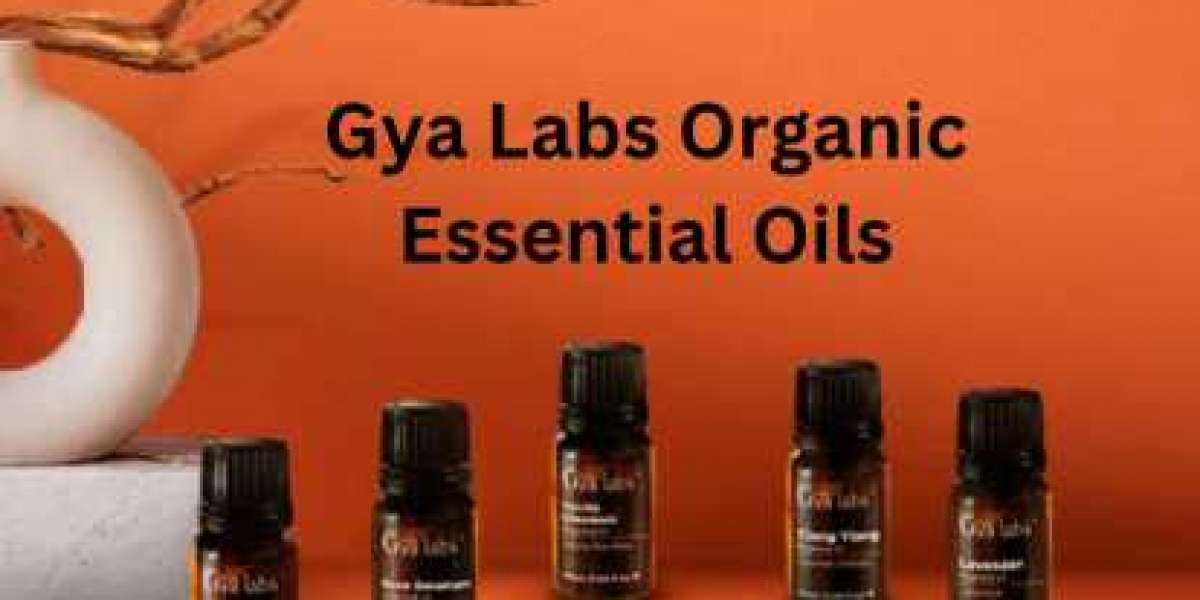In a world where wellness takes center stage, the demand for natural and organic products has surged, leading many to explore the benefits of essential oils. These concentrated plant extracts not only offer a delightful fragrance but also boast numerous health benefits. In this article, we'll delve into the top 10 best organic essential oils for health and wellness, exploring their unique properties and versatile applications.
What are Organic Essential Oils?
Organic essential oils are derived from plants grown without synthetic pesticides or fertilizers. The extraction process ensures the preservation of the plant's natural compounds, resulting in a potent and pure oil. This commitment to organic practices enhances the overall quality of the essential oil.
Benefits of Using Organic Essential Oils
The decision to use organic essential oils goes beyond personal well-being. These oils contribute to a healthier environment by promoting sustainable and eco-friendly farming practices. Additionally, their chemical-free nature reduces the risk of adverse reactions, making them a safer choice for individuals with sensitivities.
Top 10 Organic Essential Oils
Peppermint Oil
- Known for its refreshing scent, peppermint oil offers various health benefits, including improved digestion and headache relief. However, it's essential to use it cautiously due to its potency.
Lavender Oil
- Renowned for its calming properties, lavender oil is a popular choice for aromatherapy. It aids in stress relief, promotes relaxation, and can improve sleep quality.
Tea Tree Oil
- Recognized for its powerful antimicrobial properties, tea tree oil is a versatile option for skincare and can help combat various skin issues.
Eucalyptus Oil
- With its invigorating scent, eucalyptus oil is widely used for respiratory support. It's an excellent addition to diffusers and steam inhalations.
Lemon Oil
- Beyond its uplifting aroma, lemon oil has mood-enhancing effects and serves as a natural cleaner for household surfaces.
Chamomile Oil
- Known for its calming effects, chamomile oil is a go-to for relaxation and sleep. It can be added to diffusers or used in a warm bath.
Frankincense Oil
- Beyond its historical significance, frankincense oil offers spiritual and emotional benefits. It's also a valuable addition to beauty routines.
Rosemary Oil
- This oil is celebrated for its ability to improve cognitive function. Additionally, it promotes hair and scalp health when added to haircare products.
Ylang Ylang Oil
- With aphrodisiac properties, ylang-ylang oil adds a sensual touch to aromatherapy. It's also valued for its aesthetic uses in skincare.
Geranium Oil
- Known for balancing hormones, geranium oil is a versatile option for both emotional well-being and skincare.
How to Choose the Best Organic Essential Oils
Selecting the right organic essential oil involves considering factors such as purity, source, and intended use. Always read product labels to ensure you are getting a high-quality, organic product free from additives or contaminants.
DIY Recipes and Blends
For those seeking a personalized touch, experimenting with DIY essential oil blends can be rewarding. However, it's crucial to follow recipes and safety guidelines to avoid adverse reactions. Always dilute essential oils and perform patch tests before widespread use.
Conclusion
Incorporating organic essential oils into your daily routine can be a transformative journey for both your physical and mental well-being. The versatility of these oils, coupled with their organic nature, makes them a valuable addition to any wellness routine. Whether you choose to diffuse them, apply them topically, or create your own blends, the benefits are vast.
FAQs
Are organic essential oils safe for children?
- While many essential oils are safe for children, it is crucial to dilute them properly and choose oils that are considered child-friendly, such as lavender and chamomile.
Can I remember organic essential oils?
- Ingesting essential oils should be done with caution and preferably under the guidance of a healthcare professional. Not all oils are suitable for ingestion.
How do I store organic essential oils?
- Store essential oils in dark glass bottles in a cool, dry place away from direct sunlight to preserve their potency.
Are there any essential oils to avoid during pregnancy?
- Pregnant individuals should consult with a healthcare provider before using essential oils, as some oils may not be safe during pregnancy.
Can essential oils replace medical treatment?
- While essential oils offer various benefits, they should not replace professional medical treatment. Consult with a healthcare provider for any health concerns.








